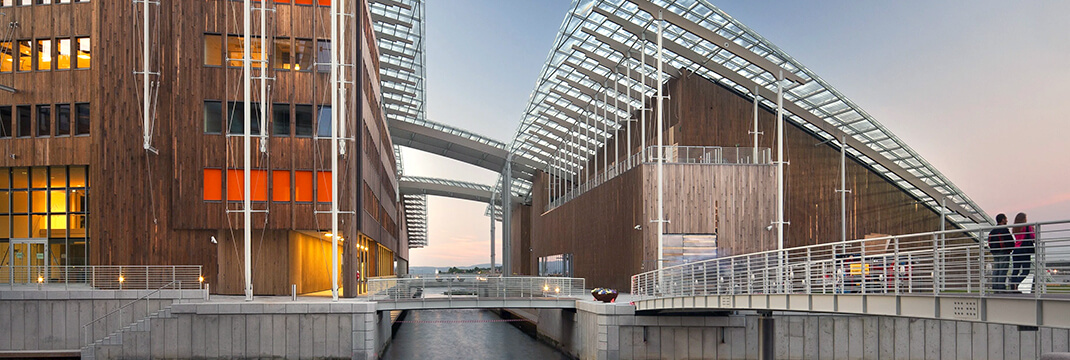
The European Modernization
Society Trying on ‘Modernized’ Outfits
The 18th century is an epoch of considerable changes in the public consciousness as well as in social, economic, and political life. In fact, it defined the way nations launched the restoration process. Such a global transference considered to be modernization. Krishan Kumar mentions that ‘historically, the rise of modern society has been inextricably linked with the emergence of industrial society and, accordingly, industrialism is a way of life that encompasses profound economic, political, social and cultural changes’ (Kumar, 2009). According to scholar’s assertion, the people could develop only if they undergo a comprehensive change. Nevertheless, many nations preferred to follow the traditional lifestyle. It was challenging to transform the government delegating the power rooted deeply in society to innovative ideas in the 18th century. Still, the modernization was implicitly a vigorous force that had even expanded the sphere of its influence on old and conservative Muslim empires that had been rejecting European impact throughout history. Indeed, the industrial epoch produced inevitable results in many nations encouraging them to advance in all aspects of life. Its profound impact on various forms of daily life established new traditions that forced nations to question own ability to progress.
The major innovations happened in Europe during the 16th-17th centuries. An upcoming renaissance of thoughts and customs resulted in the principles of sovereignty which became dominant and forced the states to honor it. Initially, the legislative base for maintaining power was Machiavelli’s The Prince, one of the first examples of law and order headship (Lushaba, 2006). Social alterations focused on the authorization of intermarriage between representatives of royal and aristocratic families. They also signified the expansion of the female role and the changes in family units. In 1789, the French Revolution embodied a profound dissatisfaction with a social stratification that, later, initiated the division upon merits and popular usefulness.
Concerning the drifts in the economy, the dominance of Spain as the first wealthy colonial superpower exemplified them. The country had access to mines of silver in Peru and Mexico. It enabled Spain to nourish own resources and to increase a national treasure. In fact, European countries had many colonies to benefit from. Thus, the leadership on the continent wad not defined. Another important characteristic of the changes was the rapid growth of the population from 130 to 190 million people. Furthermore, high fertility allowed having better harvest and nutrition respectively. Therefore, the nations whose life losses after bubonic plague were horrifyingly recovered from continuous stagnation. As a result, epidemics and wars did not influence significantly the rates of population growth. Rationalism and scientific approach determined the cultural transformation in the global society. Those tendencies undermined religious authority. Unfortunately, the church did not want to accept the defeat and started calling prominent scholars of that time heretics. Moreover, many of them encountered not only fierce criticism but also execution. For example, when Newton discovered the law of gravitation watching an apple fall from a tree branch, the society felt perplexed because it believed only in the supremacy of God. It means that the modernization was the part of old traditions and beliefs which required creative adjustments in order to meet social needs. The new epoch related to the fields of economy, politics, culture, and social life. It contributed to the development of new ideas and unique perception of the world which played an important role in the establishment of other transformations approved by the rest of mankind.
The modernization influenced the evolution of old mighty empires. The idea of a new kind of state appeared with the rise of an inner system focused on equilibrium or, in other words, the balance of power. Thus, people recognized sovereignty and accumulated the territory. In Europe, during that time there were multiethnic empires, for example, the Russian Empire, the British Empire, the Ottoman Empire, the Kingdom of France, and others. Every empire wanted to develop and to make a progressive breakthrough. For example, the British Empire was an early example of a monarchic state with decentralized power, diverse ethnic canvas, and a growing economy. In fact, the world trade influenced the pattern of its ruling involving more territories in the cooperation. Great Britain was a beneficial business partner because of its geographical location that gave access to the Atlantic Ocean and the North Sea. Moreover, the country possessed enormous resources to offer on the global market. For instance, starting from the late seventeenth century and by the end of the eighteenth century, the annual production of coal enhanced from 3 million tons to 14 million tons. Such a dramatic change depended on the industrialization that enabled the usage of advanced technologies during mining processes (Fernandez-Amnesto, 2007). Consequently, the modernization gave an impetus for a complete reorganization of the system, provided the foundation for centralization and army consolidation, and enlarged the sphere of influence.
- Free formatting
- Free email delivery
- Free outline (on request)
- Free revision (within 2 days)
- Free title page
- Free bibliography
- 24/7 Customer Support
- Quality
- Experienced writers
- Confidentiality
- No hidden charges
- Works are never resold
- No plagiarism
- 12pt. Times New Roman
- Double-spaced/Single-spaced
- Up-to-date sources
- Fully referenced papers
- 1 inch margins
- Any citation style
A decline of the Muslim empires demonstrated the inability of the Eastern world to adopt and adhere to modern transformation. The Gunpowder Empires, such as Ottoman, Safavid, and Mughal empires, ruled over Asia. Mughals led by Aurangzeb Emperor controlled the major part of India. They consisted not only of Muslims. Consequently, religious antinomies made the country the land of revolts. Taking into consideration the life of the Safavids, they also experienced challenges from the other countries. Thus, the Russian Empire was expanding its dominions in the north posing a serious threat to Persia. The external pressure increased boosting the continuing hostility towards Ottomans. Under the rule of a sultan, they, in turn, reunited powers to question Christianity and to fight bitterly in the series of wars against European countries. However, the refusal to remodel the army and other aspects of life led the Gunpowder Empire to the decline. Even though the period between the seventeenth and eighteenth centuries was prosperous, many nations experienced tough challenges based on skyrocketing population growth and high unemployment rates. Moreover, the famine exhausted economic resources disabling the power to meet the needs of the citizens. As a result, the three greatest world empires defeated before converting to a millennial order.
The era of industrialization intertwined closely with a rapid intellectual development that contemporaries call the Enlightenment or the Age of Reason due to the effect it produced on the benighted minds. Indeed, the human ability to think critically avoiding any kind of cognitive biases and erroneous beliefs developed. That time was rich in massive improvements in science, mathematics, chemistry, biology, and law. Bold ideas regarding democracy and human rights inspired the uprisings around the world. Furthermore, the Enlightenment promoted the ideas concerning liberty, government, progress, tolerance, and disconnection of state and church.
Invite your friends and get bonus from each order they
have made!
The modern phase of development was prominent for the compelling contributions of original thinkers. However, turn to Christianity of one of the most dignified India’s sophists Raja Ram Mohan Roy considered an assault. Though he specified that he ‘did not abandon one superstition in order to take up another’ (Fernandez-Amnesto, 2007). Nevertheless, Raja dedicated his life to the investigation of works by the outstanding Western scholars who established advanced principles in all spheres of life. That period was also famous for Voltaire’s foundations in the art of reasoning. In France, he was a symbol of rationalism. Voltaire was both a cultural icon and a man of paradoxes. He was an incredible ironist who defined the tone of the Enlightenment. Together with other prominent scholars, he initiated the major upheaval which established logical reasoning. Similarly to Raja and Voltaire, other scholars, including Bacon, Descartes, Newton, van Leeuwenhoek, Harvey, contributed profoundly to the revolution of though.
During the Enlightenment, people developed new ideas that shaped the understanding of the world. The remarkable thinkers managed to nourish a great epoch with original ideas. Firstly, they believed that a reason could be a helpful tool in understanding the universe. At that time, Bacon aimed to prove that science could free human minds from ignorance that led to the unproductive and uncomfortable way of life. Furthermore, it forced people to change careless and uncritical thinking. Another fact proved that human beings could progress only by working rationally. Secondly, scholars claimed that religious doctrines were helpless and ineffective in the interpretation of the world. In fact, Bacon promoted a rational approach basing it on an empiric or experimental method of exploring the truth. A bright example that revealed a practical ‘modus operandi’ appeared in northern Finland. Pierre-Louis Moreau de Maupertuis was among the expeditors who were conducting the most expensive experiment. Their goal was to refute the assumption that the Earth had the shape of a perfect sphere. However, the scientists led by Newton were arguing that the planet distended at the equator and flattened at the poles. Maupertuis’ measurements persuaded the world that previous reasoning regarding the shape of the Earth was erroneous. They proved that before presenting the fact, it was vital to examine all the possibilities.
Struggling with your essay?
Ask professionals to help you!
Start Chat
The 18th century brought new ideas. The Western world influenced remarkably another part of the globe during the period of modernization. The revolution of thought and scientific development provided the global with a footing for further development. In fact, it was the time when brilliant scholars disregarded a traditional system of credence and inculcated a rational method of exegesis of facts. Thus, nations experienced fundamental transformations while led to the next stage of evolution.



